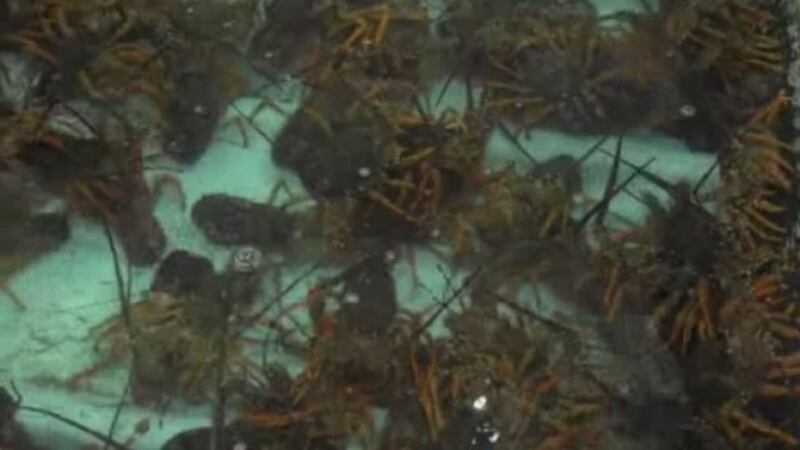A recreational fishing group has cited a survey of people who pot and dive for crayfish on the northeast coast between Pakiri and East Cape to argue that the Ministry for Primary Industries’ (MPI) assurances that the fishery is doing well are unfounded.
More than three quarters of the 822 survey respondents described the size and availability of crayfish in this popular fishery as 1or 2 out of 7.
Of those who took part, 83% supported or strongly supported a seasonal closure to all harvest to help the crayfish recover and only 7% opposed or strongly opposed the move.
LegaSea spokesman Scott Macindoe says this conflicts with the Ministry for Primary Industries view that all is well in the fisheries.
“The acting director of fisheries management Steve Halley says our shellfish and finfish fisheries ‘are in good shape’, We beg to differ. Our fisheries are not “in good shape” and they’re being mismanaged by the Ministry that is supposed to oversee the future viability of our precious marine resources,” says Macindoe.
“Recreational divers have few chances to navigate their way through these pots and when they do, they struggle to find a legal sized crayfish to take home for that special occasion.”
In a statement to Māori Television, MPI has defended their management of the area.
“We understand that LegaSea is impatient for the fishery to recover to its former abundance – we are too, and are already working to get there,” says an MPI Spokesperson.
“In 2013 we conducted a scientific survey of the wider fisheries management area called CRA2 and found that crayfish stocks there were low. Our immediate response was to reduce the commercial catch limit by 36 tonnes (15%) to bring the crayfish back.
“Since then we've been monitoring the fishery and have heard more concerns from tangata whenua and others about low crayfish numbers, so we've decided to bring the next scientific assessment forward to this year.”
According to LegaSeas spokesman, recreational fishers are concerned that statutory obligations to maintain the fishery at healthy levels are being ignored in favour of commercial interests whose low catch rates are only economically viable due to the premium prices available from live fish exports to China.
MPI’s spokesman says that the survey provides useful information. However, he also highlights the complexities of managing the fishery, “It’s important to note that we’re talking about one of the biggest recreational fisheries in New Zealand, it covers a significant area of coastline and includes the biggest population centre in the country.
“We know that within that large area there will be some areas of localised depletion of stocks, especially in places where the fishery comes under more intense pressure from multiple sectors, such as holiday spots.”
LegaSeas is calling for an independent inquiry into the way MPI is overseeing the industry, the QuotaManagement System and the future of New Zealand’s fisheries “before it is too late”.
”This is a damning indictment of the management of our fisheries. We want to make sure this doesn’t happen to other species in New Zealand waters and an independent inquiry is the only way to achieve that goal,” Says Macindoe.
Despite the survey results, MPI has defended their management of fisheries resources across Aotearoa.
“LegaSea’s press release incorrectly characterised MPI’s position that all New Zealand’s fisheries are in good shape.,” says an MPI spokesman, “That’s clearly not the case. Fish stocks will fluctuate for a range of reasons, including fishing pressure. There are - and always will be - some fisheries that require closer management others.
“We will always need to work to achieve a good balance between what is right for fishers and what is right for the fishery.”

